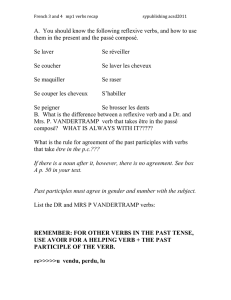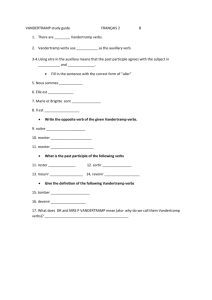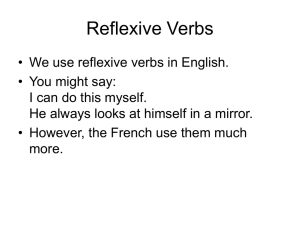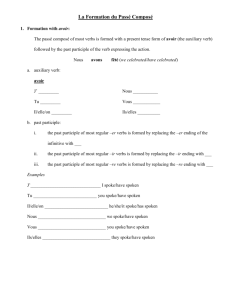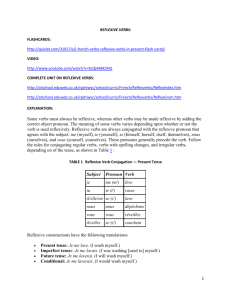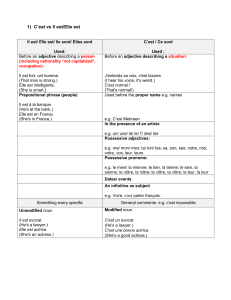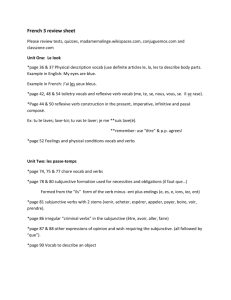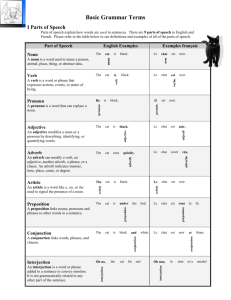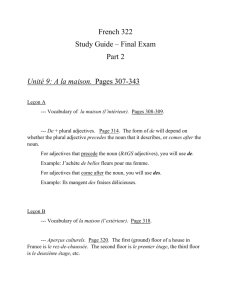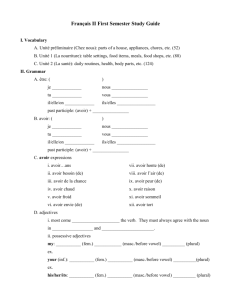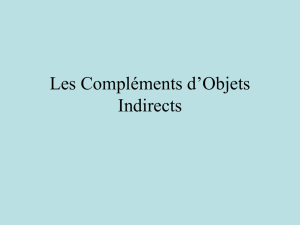Français 203 Révision: passé composé (avoir vs. être et accord) I
advertisement
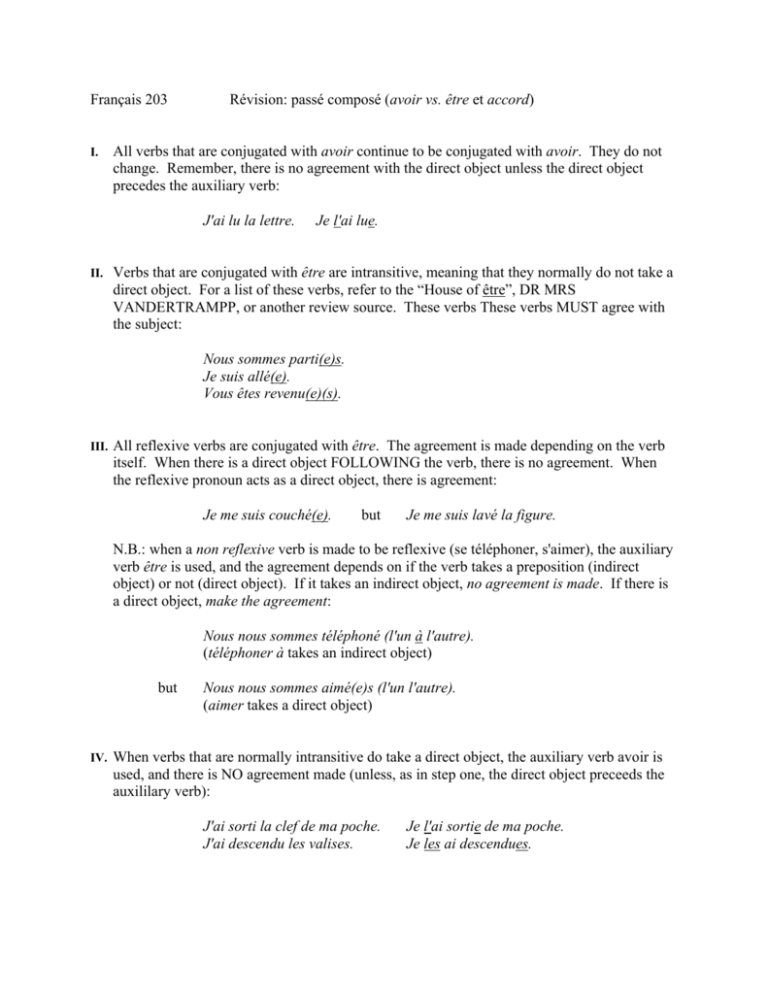
Français 203 I. Révision: passé composé (avoir vs. être et accord) All verbs that are conjugated with avoir continue to be conjugated with avoir. They do not change. Remember, there is no agreement with the direct object unless the direct object precedes the auxiliary verb: J'ai lu la lettre. Je l'ai lue. II. Verbs that are conjugated with être are intransitive, meaning that they normally do not take a direct object. For a list of these verbs, refer to the “House of être”, DR MRS VANDERTRAMPP, or another review source. These verbs These verbs MUST agree with the subject: Nous sommes parti(e)s. Je suis allé(e). Vous êtes revenu(e)(s). III. All reflexive verbs are conjugated with être. The agreement is made depending on the verb itself. When there is a direct object FOLLOWING the verb, there is no agreement. When the reflexive pronoun acts as a direct object, there is agreement: Je me suis couché(e). but Je me suis lavé la figure. N.B.: when a non reflexive verb is made to be reflexive (se téléphoner, s'aimer), the auxiliary verb être is used, and the agreement depends on if the verb takes a preposition (indirect object) or not (direct object). If it takes an indirect object, no agreement is made. If there is a direct object, make the agreement: Nous nous sommes téléphoné (l'un à l'autre). (téléphoner à takes an indirect object) but Nous nous sommes aimé(e)s (l'un l'autre). (aimer takes a direct object) IV. When verbs that are normally intransitive do take a direct object, the auxiliary verb avoir is used, and there is NO agreement made (unless, as in step one, the direct object preceeds the auxililary verb): J'ai sorti la clef de ma poche. J'ai descendu les valises. Je l'ai sortie de ma poche. Je les ai descendues.
